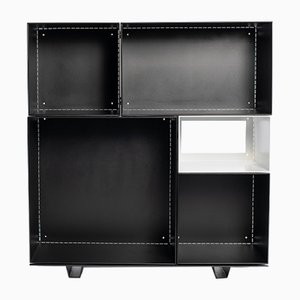
Brazilian architect-designer Davi Deusdara was born in Fortaleza, Ceará in Brazil in 1985. He studied Architecture and Urbanism at the University of Fortaleza (UNIFOR), graduating in 2009, before completing a Master’s degree in Civil Engineering at Universidade Federal do Ceará (UFC) in 2014. Subsequently, Deusdara also attained an MBA from the Fundação Getúlio Vargas. While working towards his qualifications, Deusdara also began gaining industry experience; he was an intern at Muniz Deusdara Arquitetos Associados from 2003 to 2009, and an architect with the firm from 2010 to 2011. In 2012, he founded Studio Deusdara in Fortaleza, Brazil. Since then, the studio has moved twice; first for a brief stint to São Paulo and then to its current location in Braga, Portugal.
Deusdara had some early successes that helped him launch his career in the design world. In 2013, he was part of a team of architects (his teammates were Érica Martins, Rafael Studart, and Tais Costa) to be named finalists in the Draw up a Chair design contest, commissioned by Battery Park in New York, with their U Rock Chair (2012). Then in 2014, Deusdara’s work was included in the New Territories exhibition at the Museum of Arts and Design in New York, which featured design, art, and craft from Latin America. Studio Deusdara takes an interdisciplinary, research-driven approach to exploring “themes of regional identity and the future of resources in the context of globalization.” Project Titã (2014), for example, was an initiative developed by the team responsible for the U Rock Chair and sponsored by the Brazilian Ministry of Culture that brought design thinking and woodworking skills into the lives of youth in the favelas of Fortaleza.
Studio Deusdara’s collection of furniture and design objects certainly reflects the lead designer’s architectural background—pieces like the Real Sideboard (2017) assert a bold, geometric sense of solidity—but the energetic color palettes and occasional design quirks in the pieces take the work towards a pop sensibility. The CMYK Plywood Stool (2017) series perfectly combines these two sides; the CNC milled plywood block is meticulously constructed and reveals a linear wooden texture that adds architectural dimension to the interior of each piece, while the matte painted exterior in the typical web design CMYK colors injects both a color hit and a sense of humor into any space.

